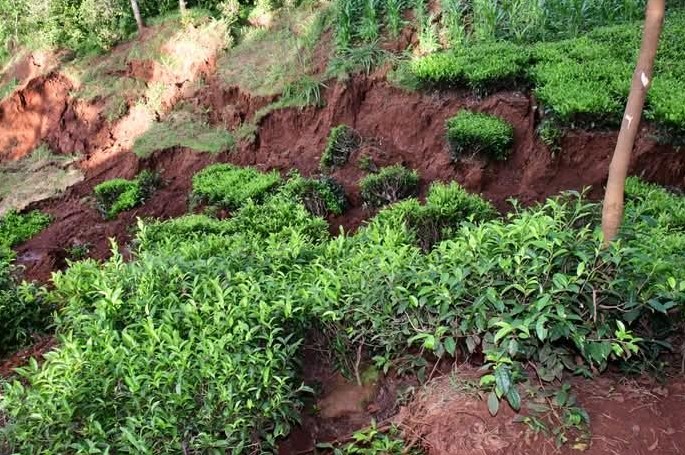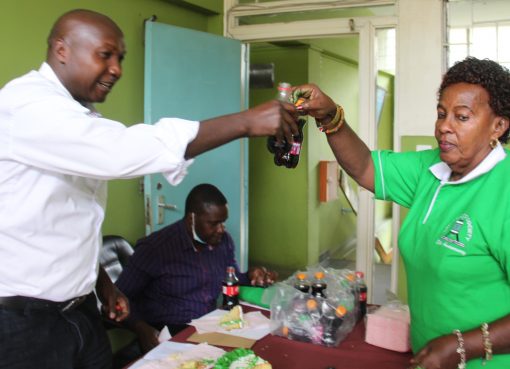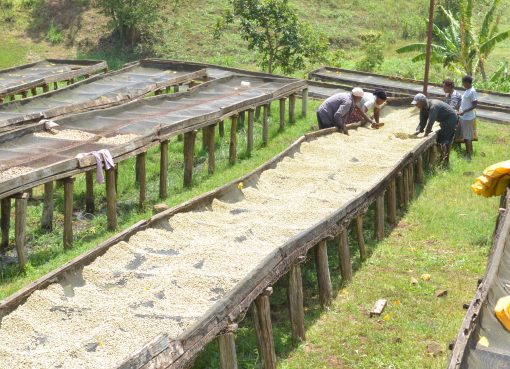The government has recommended the permanent relocation of residents in the highly seismic Musoso village in Kangema Constituency.
Last year the April-May long rains triggered a massive landslide in the village, which prompted the affected 25 families to be temporarily settled at ACK St. Andrews Kiairathe church grounds, where they are still housed to date.
Consequently, a geological survey was initiated so as to make an informed decision on whether to permanently relocate the residents from that area.
Speaking while handing over the geologist’s report to the area member of parliament at Kangema, the PS State Department for Mining, Elijah Mwangi, noted that the seismic assessments had been carried out and the team of geologists had recommended permanent relocation of residents to avert disasters as the area was found to be highly seismic.
“The team assessed the various infrastructures here and in other parts of the country during the geo-hazard mapping and they established that the nature of rock formation in the soil is prone to seismicity and therefore highly susceptible to landslides,” he said, adding that with rains, it is bound to get worse and more intense than it was in 2024; thus, the residents need to be relocated permanently.
The report further recommended planting trees in the area to prevent soil erosion by stabilising the soil and providing protective cover.
“Through a multi-agency approach, we will carry out sensitisation forums to encourage the community to plant more trees so as to prevent soil erosion and avert future disasters,” he said.
The PS urged the residents to be on the lookout on time any time they notice earth movements and always move to safer grounds instead of waiting for catastrophe when it is too late.
Further, he noted that they will work with the NGAO officials to ensure the digging up of terraces in the landslide-prone areas.
“In sloppy areas the residents need to dig up terraces to reduce both the amount and velocity of water moving across the soil surface, which greatly reduces soil erosion and that way rainwater can flow freely without being concentrated in one area,’ he averred
Meanwhile, PS Mwangi implored the residents to support the government, which was committed to implementing various developmental projects in the area currently amounting to over 1.7B.
“Here in Kangema we have the Mau Mau road, the irrigation project in Kaihi, the market at Gakira, among others; let us support the government as it implements all these projects, “he observed.
The area member of Parliament, Peter Kihungi, noted that landslides in the area date back a decade and that the geological survey will help make an informed decision on relocating the residents.
“In 1917 the first landslide happened and it left many casualties. In 2018, after 100 years, the ground started sinking and the people were moved, albeit shortly before reoccupying their land,” he said.
Last year, the heavy rain we experienced triggered the landslides and the land started sinking again. We had to act first and move the people to a safe ground before a catastrophe struck,” added the MP.
He also thanked the church for hosting the displaced families and urged them to continue hosting them before plans and funds to permanently settle elsewhere are availed by the government through the national assembly.
The 25 families were moved from their Musoso village to the church compound when their land started sinking as a result of long rains that pounded the country last year.
One of the victims, 60-year-old Simon Irungu, thanked the government for relocating them and getting a shelter for them even as they await permanent resettlement.
Irungu notes that the families lost over 1200 tea bushes and thousands of coffee stems.
He observes that the land started sinking in 2017 and they relocated temporarily before moving back there, only for a massive landslide to hit the area last year, in which the families lost all their sources of livelihood.
By Florence Kinyua





